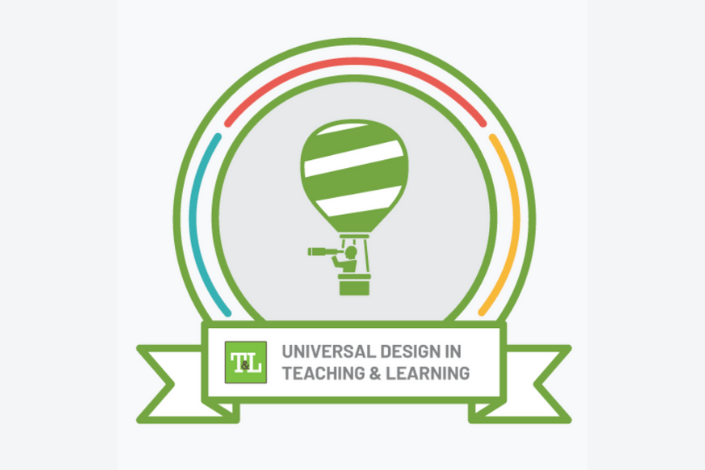
The Digital Badge for Universal Design in Teaching and Learning ten-week course concluded this month, in which 26 Hibernia College community members participated. The course was developed by the Association for Higher Education Access and Disability (AHEAD) and University College Dublin (UCD) Access and Lifelong Learning as part of the National Forum for the Enhancement of Teaching and Learning’s open access digital badge initiative.
INCLUSIVITY, EQUALITY AND ACCESSIBILITY OF DIGITAL DESIGN
‘Hibernia College is delighted to have been part of the initiative. In the spirit of learning, all those who participated are now sharing their experience with the wider College. We are also delighted to have a group of facilitators for the next-roll out of this fantastic course,’ shares Mary Mulcahy, Marketing Director. Mary participated in the course exploring universal design principles for inclusivity and equity.
Francis McKeagney, Head of Digital Learning shares the experience of the Digital Learning Department (DLD): ‘During the course, seven members of the DLD collaborated on a redesign activity in sync with the innovation goals of the department. After some discussion, we decided to examine one of our content development tools, Articulate Rise, through the lens of the Web Content Accessibility Guidelines (WCAG).
Over a series of meetings, we worked through the 63 conditions for conformance and examined and discussed the work required for each case. To identify and agree on the requirements in such a short time, with a significant portion of the DLD, is a powerful outcome. We are now continuing the work of making Articulate Rise compatible with the standards of WCAG 2.1 and the accessibility requirements of our students.’
QUALITY ASSURANCE and UDL
Callaghan (Cal) Commons and Niall Kearney, Quality Assurance Administrators, both completed the UDL badge and were able to make tangible applications to help students more readily access information about College policies and procedures.
Cal shares, ‘The activity I chose to redesign for this course was in relation to the Hibernia College Quality Framework (HCQF). The HCQF is where staff and students find policies, procedures and forms for student-centred College processes. Students typically engage with these processes when they are stressed and looking for the appropriate form for their situation. This may result in students becoming overwhelmed and completing the forms incorrectly. In a recent student survey about the HCQF, 30% of respondents said that they had difficulty finding information on College policies and procedures.
Bearing in mind the UDL principle of Multiple Means of Engagement, I created short videos about the Extenuating Circumstances process. Using this communication tool, I addressed why a student may wish to seek this process, what is required, where they can find the form, detailed information on the related policies and procedures, as well as possible outcomes of the process.
We hope these videos will help students easily find the information they need and alleviate anxiety for those who may already be feeling overwhelmed. These videos will also be useful for the wider College community, as they explain the student-centred process in a calm and straightforward manner that is easy to understand and follow.
After having taken part in the course, I am now in a position to not only implement UDL within my quality assurance practice, but also support colleagues as they implement UDL practices.’